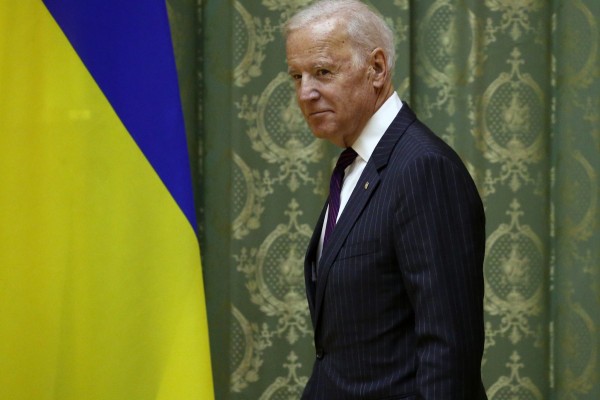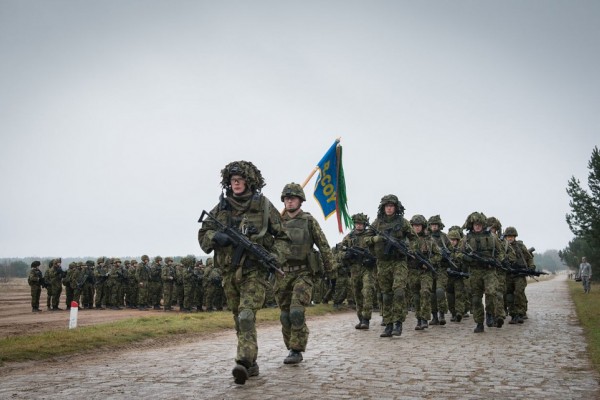The coup that never happened
Has Putin deprived himself of the only means to suppress any future conspiracy in the bureaucratic apparatus of the state?

A crowd in Rostov-on-Don watching a Wagner tank with flowers sticking out of its muzzle, June 24, 2023. Photo by Fargoh/Wikimedia Commons.
The most surprising thing about the mutiny by Yevgeny Prigozhin and his mercenaries from the Wagner Group is that the coup attempt was actively discussed in advance. Prigozhin repeatedly warned that he was going to stage a march on Moscow, and political commentators repeatedly wrote about how this threatened Putin’s system. Nevertheless, when the march did happen, no one was prepared for it. Including, apparently, Prigozhin himself, who was confused by his own easy success and then frightened by what he himself had done.
No matter what official propaganda said in hindsight, the rebels were able to enter the capital and occupy key government offices there without difficulty. The troops commissioned to stop them showed no desire to fight, several helicopters sent by the Ministry of Defense to attack Prigozhin’s convoys were immediately shot down, the police and Rosgvardiya (the National Guard of the Russian Federation) hid and fled as soon as they were informed of the rebels’ approach. The Wagner Group’s fans were already preparing to meet their idols on the streets of Moscow, talking on social media about where to go with flowers. But then Prigozhin unexpectedly turned back, claiming he did not want bloodshed (although this did not deter the Wagner fighters from shooting army helicopters).
Prigozhin most likely expected that the frightened authorities would negotiate with him and meet his demands, which focused on the removal of the leadership of the Ministry of Defence, with which he was in acute conflict. Undoubtedly, some people in his entourage went further, inciting the chief to openly take power and become a dictator like Mussolini, forcing Putin to accept the role of nominal head of state under a de facto new ruler. But it is no less obvious that Prigozhin’s own ambitions were much more modest. The panic that began in the Kremlin, the flight of the government from the capital to St. Petersburg, the frightened silence of the governors in the regions through which Prigozhin’s fighters travelled, demonstrated that soon there will be nobody to negotiate with: the political system simply crumbled before his eyes.
Neither Prigozhin nor his team had the slightest idea of what to do in this situation. At the same time, the wait-and-see attitude of the military at the front and the leadership of the special services, who were in no hurry to interfere in the course of events, testified that the main struggle for power was still ahead. As a result, the leader of the rebellion preferred to reach an agreement with Putin’s entourage at the last moment, but paradoxically he was now in a weak position: he had to avoid at all costs taking the power that was falling into his hands.
As a result, no concessions were made to the rebels. There is probably some shady agreement to redistribute the resources which the Russian oligarchy controls in Africa, with the help of the Wagner PMC. If previously Prigozhin and his team only guarded the extractive operations, now they were probably more or less promised a large share. The details of this agreement remain unknown, and we can only guess as to its content. Since the leader of the mutiny not only did not go to Belarus, as promised, but is at liberty, appearing now and then in Moscow and St. Petersburg, we can conclude that the agreement exists and is being honoured, at least for the time being. In Russia, however, Prigozhin’s position has crumbled. The Patriot media group which he created, and which was carrying out a considerable part of the propaganda work for the Kremlin online, was liquidated; the Concord Company supplying food to the armed forces was shuttered as well. These firms, which generated billions of rubles for their owner, were the most important pillars of his business empire, which is now actually being liquidated inside Russia. Also the government clearly does not intend to continue financing the Wagner PMC from the state budget (assuming, of course, that this entity will continue to exist as a special private enterprise). According to Vladimir Putin’s recent admission, over the past year the government has spent 86.2 billion rubles on Wagner. In comparison, the city of Rostov-on-Don with a population of one million, seized by Prigozhin’s mercenaries on June 24, had a budget of 54 billion, and Novosibirsk, the capital of Western Siberia, 76.2 billion. And we are talking specifically about direct transfers from the federal budget without taking into account funds received by Prigozhin through his other companies or from African rulers with whom he cooperated.
Prigozhin’s combat units should be disbanded on Russian territory and deprived of heavy weapons, although in practice this directive has not yet been carried out. However, it is quite understandable that after their leader himself canceled the mutiny he had started, the possibility of a repeat coup attempt on their side is minimal.
In this screenshot taken from a video released by the Prigozhin Press Service on May 20, 2023, Yevgeny Prigozhin, head of the Wagner Group, holds a Russian flag in front of his soldiers in Bakhmut, Ukraine.
Those who were enthusiastically awaiting Wagner’s entry into Moscow are angry, offended, and demoralized. But Putin’s supporters are no less demoralized. The president, whom they considered a resolute and courageous leader, has shown himself to be weak and inconsistent. Ending the mutiny by agreement looks like a humiliating outcome for both sides.
The authorities suffered the heaviest reputational damage. The state propaganda, which until recently was glorifying Wagner, is now making every effort to emphasize the insignificance of its contribution to the military achievements of 2022. But by doing so, it has finally undermined public hopes for a successful conclusion of the conflict with Ukraine. Of course, in Russia, the political situation depends little on the opinion of citizens, and even the mood of the elite is not a decisive factor. Bosses of the bureaucracy, security services and the army hold the real power. But how loyal are they after what has transpired? And are they united?
If the security services are inherently opaque, the mood in the army clearly does not inspire optimism in the Kremlin rulers. While neither Prigozhin nor Wagner’s fighters and commanders have been subjected to reprisals, despite the helicopters they shot down, the pilots they killed, and the government institutions they seized in Rostov, a purge is unfolding in the military, where sympathizers of the insurgents are being identified, questioned, and removed from their posts. It turns out that passive and peaceful expressions of discontent are more dangerous than opposing the government with weapons in hand. The power vacuum that formed on June 23-24 makes many officials and members of the military think about their own prospects. Some become frightened; others, on the contrary, see an opportunity emerging to realize their loftiest dreams and ambitions.
As we know, Bonapartes do not appear on the scene of lost wars. No one in Russia has managed to build a reputation and win people’s love on the scaffolding of the Ukrainian campaign. But prolonged wars, the pointlessness of which is increasingly obvious to society, may well give rise to unrest within the military, leading to anti-government demonstrations. Here we can think not only of military coups in the Global South, but also the Carnation Revolution in Portugal.
By inflating the staff and expanding the capabilities of the Wagner PMC, Putin has systematically undermined the official military, creating his own private army independent of the formal structures of the armed forces, which he considers unreliable. This does not mean, however, that the Kremlin trembles before the military. In the end, a successful coup in Russia can only be bureaucratic. The Russian military—unlike those in Latin America—is not a separate closed corporation. But precisely for this reason the armed forces are liable to become involved in intrigues or ententes with powerful groups within the civil service who are interested in changing the situation. And if tanks appear in the streets again, it will be more of a backdrop or a show of support for the real coup taking place in the offices of the bureaucrats.
The Wagner Group may well begin to exert pressure on the civil service and society at large, to the extent that it behaves like a Praetorian Guard whose power rivals not only that of the military, but also the bureaucratic apparatus and the special services. Putin and his closest friends do not dispose of such a resource. They themselves miscalculated in spawning a Frankenstein’s monster beyond their control. And by doing so, they have deprived themselves of the only means to suppress any future conspiracy brewing in the bureaucratic apparatus of the state.
Boris Kagarlitsky is a professor at the Moscow Higher School for Social and Economic Sciences. He is the editor of the online journal and YouTube channel Rabkor. In 1982 he was imprisoned for dissident activities under Brezhnev and later faced arrests both under Yeltsin in 1993 and under Putin in 2021. In 2023 the authorities declared him a “foreign agent” but refused to leave the country, unlike many other critics of the regime. His books in English translation include Empire of the Periphery: Russia and the World System (Pluto Press 2007), From Empires to Imperialism: the State and the Rise of Bourgeois Civilisation (Routledge 2014), and Between Class and Discourse: Left Intellectuals in Defence of Capitalism (Routledge, 2020).










